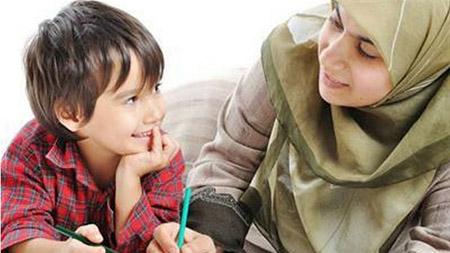
Policies and programs aimed at increasing educational and economic opportunities typically target either low-income children or their mothers, but not both, which limits their impact in fostering intergenerational mobility. There is a need for the development and implementation of dual-generation strategies, which focus simultaneously on both children and mothers to foster long-term learning and economic success for low-income families.
What is important is to find out the role of mothers in educational success of their children to be able to formulate proper strategies to encourage mothers’ education.
Today, the question of mother’s education and its impact on the academic achievement of children is a serious issue. Many studies have been undertaken to find out the correlation between mother’s education and children’s academic success. In this article only the results of a few studies are reproduced to analyze the maternal education’s impacts on the education success of children.
According to Meagan Rawls (2013), mothers are more likely to be actively involved with certain aspects of the child’s education. The more resources mothers have available, the more they can transfer to their children. If mothers have more cultural capital in the form of education, they can transfer that capital to the child.
A study by Prof. Abdul Ghafoor Awan on the “Impact of Educated Mother on Academic Achievement of her Children: A Case Study of District Lodhran- Pakista,” shows that children of educated mothers show good academic performance. Academic performance of highly educated mother’s children is better than those whose mothers are not well educated. The evidence show that 87% children, whose mother are educated, are academically successful while the ratio of academically unsuccessful ratio was only 13 percent.
Awan and Sheikh (2015) argue that women have to play every role in the society. So there are many advantages of education for women. First an educated woman is conversant with her duties as a citizen of a state. An educated woman is aware of the part she has to play in the growth of her nation. She understands her responsibilities towards herself her family and country. Women cannot become good citizens if they are uneducated. Moreover they pass on their education to their children it has been rightly said If you educate a man you educate an individual. But if you educate a woman you educate a family. So education for women cannot be neglected. On the other hand a mother has a great influence on her child. The upbringing of a child the inculcation of good ideas and habits are done more by the mothers than the father or the teachers.
According to Anna Sutherland, Children's educational outcomes—their cognitive skills, grades, and educational attainment—are closely linked to their parents' level of education. This observation, well-supported by years of research, will come as a surprise to no one. Having better-educated parents means a higher household income, which for kids translates into attending better schools, among many other benefits. And more educated parents are more likely to marry before having kids and to stay married long-term, so their kids reap the benefits of family stability. Furthermore, since intelligence is linked to educational attainment and is partially heritable, children of college-educated parents may have inborn, genetic advantages over other children.
Awan and Zia (2015) say that an educated mother can serve her country in the sense that she produces good citizens with tolerant views and vast outlooks. Uneducated mothers are superstitious. They do not have elementary medical knowledge. The alarming figure of infant mortality is mostly due to the ignorance of mothers. Educated mothers will give the nation healthy enlightened and decently brought up children. In this way the future of nations depend on the education for women. One more thing an uneducated woman cannot be a good wife. She will not be able to understand her husband. There will be no mutual adjustment which is very essential for a good married life. On the other hand an educated wife is refined matured and resourceful. She can help the family by getting into some employment. She can look after her husband and children in illness. She can easily run the administration of the home properly. She can bring peace prosperity and progress in home. When education is so necessary for women more girls schools colleges and universities should be opened for them. However, they argue all women do not need that type of education which is imparted to men.
References:
Awan, A.G. (2015) “Impact of Educated Mother on Academic Achievement of her Children: A Case Study of District Lodhran- Pakistan, ‘ Journal of Literature, Languages and Linguistics, Vol.12, 2015, www.iiste.org.
Awan, A.G. and Bilal Ahmad Sheikh (2015) “The Enigma of Wealth and Education as determinant of Poverty Alleviation,” an unpublished Thesis, Institute of Southern Punjab, Multan, in Awan, A. G. (2015).
Awan, A.G. and Asma Zia (2015) “Comparative Analysis of Private and Public Educational Institutions: A case study of District Vehari, Pakistan” Journal of Education and Practices, Vol 6 (16) 122-130.
Rawls, Meagan (2013) The Relationship Between Mother's Level of Education and Parent Involvement, Thesis, Virginia Commonwealth University.
Sutherland, Anna, “The Many Ways Mothers' Education Matters,” https://ifstudies.org/blog/the-many-ways-mothers-education-matters
- Seyed Morteza Anjavinejad is the Deputy Principal for Extracurricular Activities, Safaiyan School, District 4, Department of Education, Shiraz, Iran
